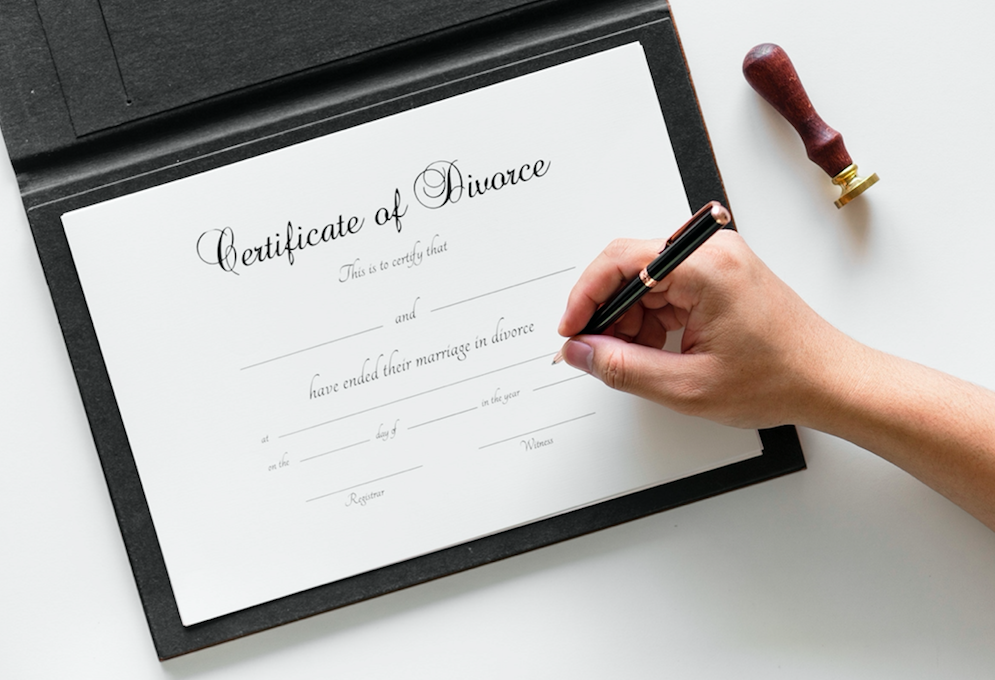I KEEP six honest serving-men
(They taught me all I knew);
Their names are What and Why and When
And How and Where and Who.– Rudyard Kipling
I’ll use all six “serving men”—what, why, when, how, where, and who, albeit sometimes in slightly different order—to explain three broad topics: (1) estate planning; (2) trusts; and (3) business succession planning. If you’re unsure of any of the three topics listed, this is the blog post for you.

WHAT is an Estate Plan, Anyway?
What do we talk about when we talk about estate planning? There are six documents that should be part of everyone’s estate plan. Additionally, you should also keep these six documents updated and current. It’s also important you take note of assets with beneficiary designations (such as those on IRAs and bank accounts).
WHO Needs an Estate Plan? Everyone!
Everyone needs an estate plan. If you’re young, healthy, unmarried, have no children, and have no significant or unusual assets, perhaps you could talk me into the idea that you don’t entirely need an estate plan. Even in such exceedingly rare cases, I strongly recommend making sure your beneficiary designations are completed and up-to-date.
For example, beneficiary designations can be found on your checking and savings accounts and on your retirement benefit plan. But, if you’re married, and/or have kids, and/or have significant or unusual assets, and/or own part or all of a business, you most definitely need an estate plan.
WHY Do You Need an Estate Plan?
Estate planning is not exactly material for scintillating conversation. In fact, I’d bet most of us like to avoid this topic because it can be confusing, and requires lots of decision-making. And, yes, it forces one to think about the mortality of loved ones and the self. Estate planning, after all, is a roadmap about what you want to happen after you move on from this life. While it may not be a fun topic, it is indeed a necessary one. If you die without an estate plan, there are several negative consequences.
Without an estate plan, you cannot choose who receives your estate assets.
If you die without a will, you leave the decision of who will receive your property, in what amount, and when up to the Iowa legislature and/or Iowa courts. With this situation, there is always the very real possibility that the distribution of your estate will be greatly different than if you had chosen it through an estate plan.
Without an estate plan, you cannot choose a guardian for your minor children.
If you die without an estate plan, Iowa courts will choose guardians for your children. One of the most important aspects of a will is that it allows you to designate who will be the guardian for your children. This can ensure that your children are cared for by the person that you want, not who the court chooses for you.
Without an estate plan, Iowa courts will choose your estate’s executor.
If you die without an estate plan, the probate court is forced to name an executor. The executor of your estate handles tasks like paying your creditors and distributing the rest of your assets to your heirs. If the probate court has to pick who will be your estate’s executor, there is always a chance that you would not have approved of that person if you had been alive. If you have an estate plan, your will names a trusted executor who will carry out all of your final wishes, pay your bills, and distribute your assets as you intended.
Without an estate plan, you can’t help your favorite nonprofits.
If you die without an estate plan, all your assets— house, savings, retirement plans, and so on—will pass to your heirs at law as specified under Iowa’s statutes. If you have an estate plan, you can include gifts to your favorite nonprofits and see that they are helped for many years to come.
HOW Do You Structure Your Estate Plan?

Again, there are six basic documents that should be part of everyone’s estate plan:
- Estate Planning Questionnaire
- Last will and testament
- Power of attorney for health care
- Power of attorney for finance
- Disposition of personal property
- Disposition of final remains
We’ll go through each document briefly, so you have a sense of what each entails.
Estate Planning Questionnaire
Estate planning involves facing heavy questions, and depending on the number of assets and beneficiaries you have, may take quite a bit of time and thought. I recommend clients (and even those who aren’t my clients) complete an Estate Plan Questionnaire. An Estate Plan Questionnaire is a simple way to get all of your information in one place and makes it easier for your attorney to build your estate plan.
As with any project, it helps “to begin with the end in mind.” A questionnaire can help get you there.

Last Will and Testament
Now let’s discuss your last will and testament. In sum, you’ll be answering three major questions:
Q1. Who do you want to have your stuff?
This includes both tangible and intangible things. An example of a tangible item would be your coin collection. An example of an intangible asset would be stocks.
Q2. Who do you want to be in charge of carrying out your wishes as expressed in the will?
The “executor” is the person who will be responsible for making sure the will is carried out as written.
Q.3. If you have kids under age 18: who do you want to take care of your minor children?
You’ll want to designate a legal guardian(s) who will take care of your minor children until they are adults.
Power of Attorney for Health Care
A power of attorney (POA) for health care designates someone to handle your healthcare decisions for you if you become unable to make those decisions for yourself. A healthcare POA can govern any kind of decision that is related to your health that you want to address. A healthcare POA may include decisions related to organ donation, hospitalization, treatment in a nursing home, home health care, psychiatric treatment, and more.
For example, if you don’t want to be kept alive with machines, you can make this clear in your POA for healthcare. But, keep in mind your POA for health care isn’t just about end-of-life decisions, again, it can cover any medical situation.
Power of Attorney for Finance
The power of attorney for financial matters is similar to the health care document just discussed, only your designated agent has the power to make decisions and act on your behalf when it comes to your finances. This gives them the authority to pay bills, settle debts, sell property, or anything else that needs to be done if you become incapacitated and unable to do this yourself.
It might be obvious by now, but I’ll state it just in case: choosing an agent for a power of attorney requires that you think long and hard about who would be best suited for the job and who can be trusted.

Disposition of Personal Property
Now, let’s get to the disposition of the personal property. This is where you get specific about items you want particular people to have. If you’re leaving everything to one or two people, then you may not need to fill this out. But, if you know you want your niece Beth to have a specific piece of jewelry, and your cousin Karl to have that bookshelf he loved, then you’d say so in this document.
Disposition of Final Remains
The disposition of final remains document is where you get to tell your loved ones exactly how you want your body to be treated after you pass away. It can be as general as simply saying “I want to be cremated and scattered in my garden,” or it can be specific and include details of plots you’ve already purchased or arrangements you’ve already made.
Beneficiary Designations
Along with the six basic estate planning documents, don’t forget about your assets with beneficiary designations.
Common accounts with beneficiary designations include savings and checking accounts, life insurance, annuities, 401(k)s, pensions, and IRAs are all transferred via beneficiary designations. These beneficiary designations actually trump your will!
Regarding assets with beneficiary designations, you must make sure that designations are correctly filled out and supplied to the appropriate institution. Remember to keep these beneficiary designations updated and current.
WHEN Do You Update Your Estate Plan?
Let’s say you’ve gone to an estate planning lawyer, and these six basic estate planning documents have been drafted and signed. What else? You need to keep these documents updated and current. If you undergo a major life event, you may well want to revisit with your estate planning lawyer, to see if this life event requires changing your estate planning documents.
What do I mean by a major life event? Some common events would include:
- Selling or buying land
- Birth or adoption of a child or grandchild
- Marriage or divorce
- Illness or disability of your spouse
- Purchasing a home or other large asset
- Moving to another state
- Large increases or decreases in the value of assets, such as investments
- If you or your spouse receives a large inheritance or gift
- If any family member, or another heir, dies, becomes ill, or is incapacitated
This is just a short list of life events that should cause you to reconsider your estate plan. There are many others; if you think you might have undergone a major life event, check with your estate planning lawyer.
WHERE Do You Keep Your Estate Plan?
You should store your estate planning documents in a safe place, such as a fireproof safe at home, or a safety-deposit box. Another option in our digital era is storage on the “cloud.” Just make sure the important agents under your estate plan—say, for example, the executor of your will, or power of attorney representative—can access the documents if and when the need arises. For most folks, that’s enough: the six documents, keeping the documents current and remembering about those assets with beneficiary designations.
Don’t Forget About Benefiting Charities!
Perhaps most importantly, through proper estate planning, you can help your favorite charities in ways large and small. One common way grantors elect to support the causes and organizations they care about is by naming them as a beneficiary of a certain amount or percentage of the estate’s assets.
Time for a Trust?
Wait a second…what do you mean by “for most folks, that’s enough?” Indeed, for most Iowans what I’ve outlined here is enough. There may be folks who have a high net worth, or who have complex assets (for example, more than one piece of real estate), or own part or all of a robust business, or otherwise have unusual situations. In such cases, a trust may be helpful. That’s considered more “advanced” estate planning and will mean additional conversations and collaboration on what estate planning tools work best for the situation.
See? That wasn’t so bad!
Whether it’s complicated or simple, it does require some thought and time. But, it’s worth the investment. A proper estate plan can save you and your estate costs and fees, help your family and friends, and provide you peace of mind.
Do you have an estate plan? Why or why not? I’d love to hear from you in the comments below. You can reach me at any time at 515-371-6077 or gordon@gordonfischerlawfirm.com.
Everyone has unique needs and thus every estate plan needs to be personalized. Online templates for estate plans won’t cover the nuances of your life, wishes, and assets. The best place to start on your personalized estate plan is with my Estate Planning Questionnaire.




























